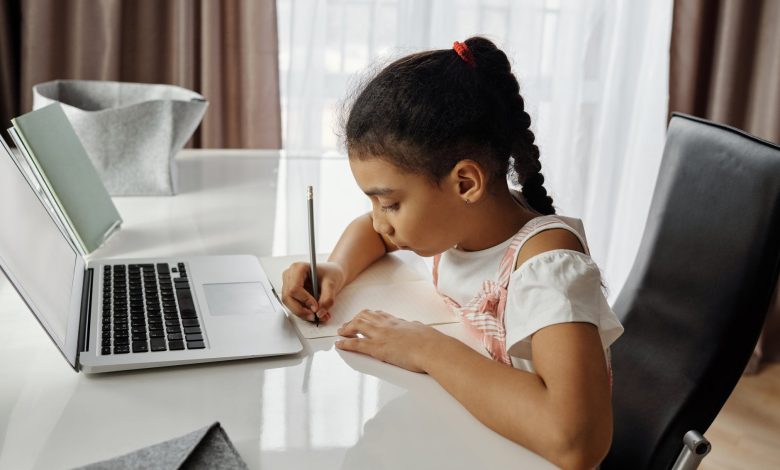Importance of Social Engagement in Online Classes

Ever since the transition from in-person classes to online classes have started to dominate as a new learning system that multiple educational institutions adhere to, more and more students are finding it difficult to adjust, lowering down their productivity levels and lessening their will and motivation to learn. It is not easy to be engaged during classes being conducted virtually. However, it is important to value social engagements more as they encourage skills and habits that give the students a better chance of success in school.
Interacting with both teachers and classmates drives a lot of benefits, affecting one’s performance in school. It is critical to any student success. One of the main reasons why this aspect is important, is because it can integrate certain skills that can only be developed when you will be socially engaging during online classes. This can also let students thrive in both their education, and their future careers as well. Social interaction leads to an increase in student engagement, motivation, and helps in improving student performance. The teachers must make certain opportunities to be meaningful and have sustained social interactions in online classes.
Student Engagement
When you look at how the teachers are delivering the class to students, they always make it a point to produce well-designed lectures that can drive students to be engaged to learn. Student engagement is defined as the amount of attention, interest, curiosity, and positive emotional connections that students embody when they are learning. And students that are engaged have more motivation to take part in online classes, while having to enjoy achieving their learning goals. They may feel naturally motivated to gain new and deeper understanding.
If you think about it, any other types of social interaction practiced between teachers and students is important and will always be helpful to learning. It can develop one’s confidence by talking with a group of people that is essential in the so-called “outside world”. Additionally, it gives students the chance to engage in active cognitive processing. It demands them to participate in making meaning out of content, and forcing them to contextualize that meaning. Given these, students will definitely learn something from this, and might incorporate them as well outside classes.
Teacher-to-Student Interaction
An effective online learning mainly consists of sustained interactions between teachers and students. Teachers yield productive lessons and coursework that will help develop student engagement in a way they will maintain constant interaction with them. This includes course-related discussion forums, webinar sessions, instant messaging within the course, and other learning activities that will influence them to participate, leading to teacher-to-student interaction. In this way, students will take part by contributing to online discussions, sharing course materials, and any other type of related engagements. Switching to online classes does not hinder students from having a healthy interaction with their teachers. They are given the ability to have sustained opportunities to interact with teachers throughout the entire duration of a term. This is a means of developing a collaborative discourse.
Most teachers have their own way on how to make students be engaged with what they are teaching. For instance, they ask students to share their related personal experiences, achievements, and perceptions of the actual topic being studied. This may lead not just to a collaborative understanding and gaining of knowledge, but also give the teachers an idea on how they can improve their ways that can help maintain this teacher-to-student engagement.
Student-to-Student Interaction
For students, communication is essential. Interacting with one another during online classes allows them to share each of their ideas on certain topics and courses. This can lead them to motivate deeper understanding, as well as develop interesting personal applications of course concepts. This type of engagement also forms bonds and even closer friendships with fellow classmates. It gives them the chance to share academically-related struggles and triumphs, and even personal ones, empathizing with one another.
Online classes also bring out opportunities for students to interact with each other in terms of groupworks. With the technology available today, students can now host their own virtual space to meet with classmates, and accomplish the tasks together. They will be able to plan, complete, and share their findings with one another. These student collaborations prepare them for an integral part of life once they finish school.
It is important to create activities that will enhance engagement. This will prevent students from experiencing isolation in the learning environment. These activities will let them be connected and create a dynamic sense of community.
Improve Student Performance
Social engagements mainly promote collaborative active learning with their fellow classmates. Students do not actually need to have everything spoon-fed, and explained to them upfront. Actually, students learn more when they have the freedom to make educational discoveries on their own. This gives them the opportunity to learn balancing their freedom and discipline. This can be crucial in real life outside school.
On the other hand, online classes also help students to engage with their own learning. They must understand what they are expected to learn and aim to grasp every information available. This is so they would not get out of track, especially during online classes. With online learning, they are also given the opportunity to self-reflect and assess their own progress. It helps them learn the concepts in a deeper sense.
Increase Motivation
Having the students get involved in group activities that enables them to engage in collaborative learning, might help in increasing their motivation. They will more likely enjoy studying if they work with people they know. Thus, it leads to more productive learning as well. With motivation being considered as one of the most essential aspects of success, social engagements give learners the chance to use language successfully, measuring their progress which should lead into an increase in motivation.
Key Takeaway
Maintaining social engagement and interaction within online classes is one of the various ways that students can do to thrive and prepare themselves before diving into the real world. This helps them develop social skills, improve student performance, and even increase motivation while maximizing interaction in virtual classrooms. Which is why it is important to practice certain measures that promote social engagement.





